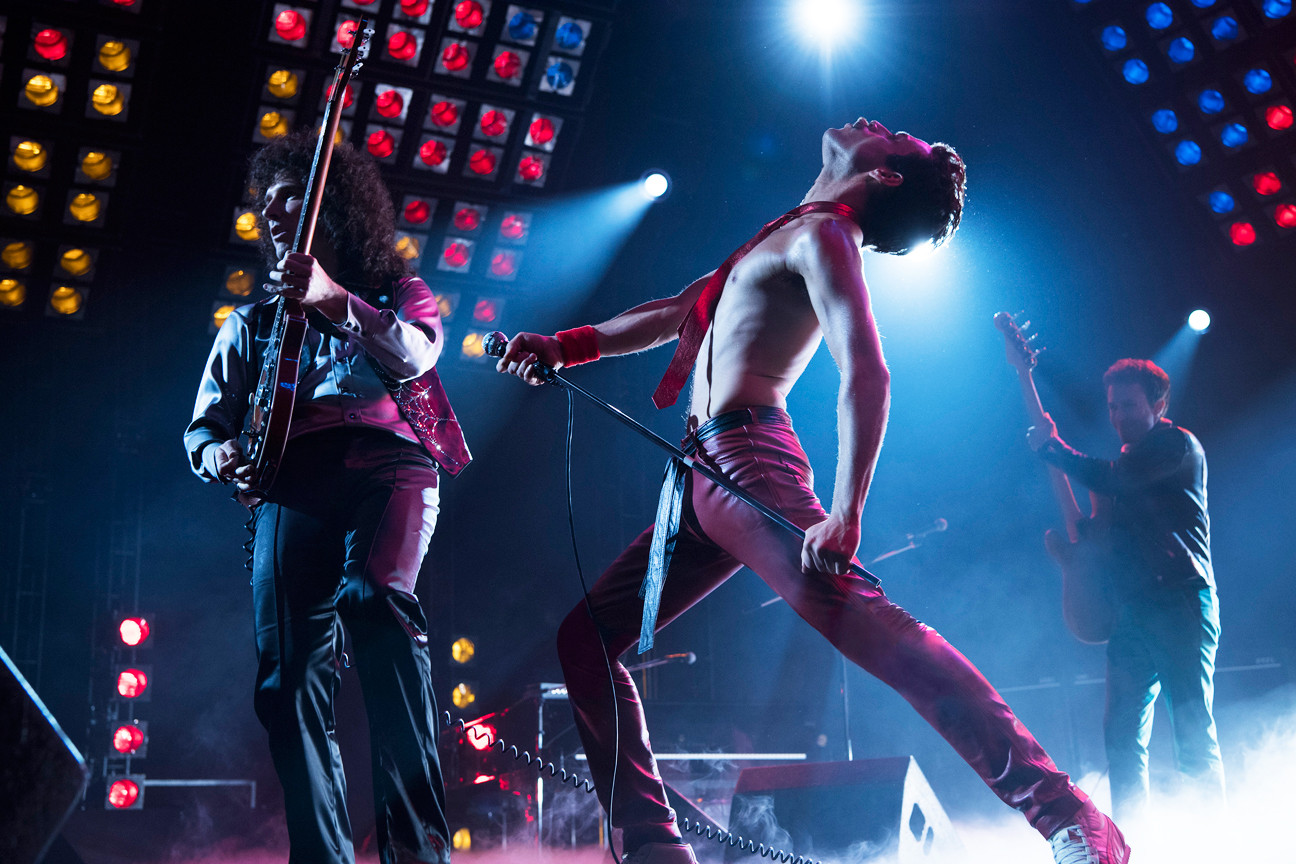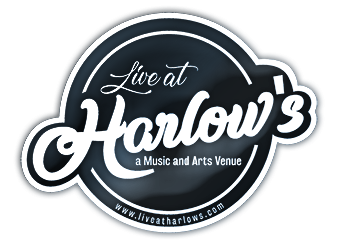
by harlowmedia | Mar 12, 2020 | Pro Tips
By Sam Wilder
So you always wanted to be a professional musician? See your name in magazines, your band logo on album covers or postered all over town, hear your songs on the radio, and don’t forget that rock star life you dream of. But without a doubt there are a ton of challenges on the path to becoming a professional musician. Here are some tips to help you reach your goal.
1. Practice, Practice, Practice
Let’s start with the obvious. If your dream is to be the next Van Halen or Satriani but your legato or tapping techniques leave a lot to be desired. Or you are an aspiring drummer who doesn’t know diddley about mastering their paradiddles. Don’t worry! Whether you’re a beginner or advanced you can always progress with regular practice or with the help of an experienced instructor.
2. A Little Patience
The ability to play complex melodies, difficult chords or super fat grooves right off the bat is pretty rare. So it pays off to have patience… especially with yourself. This includes the boring repetitive exercises of going up and down scales or playing that solo over and over for the millionth time to nail that perfect take. Keep in mind that all your idols went through the same process.
3. Perseverance
The previous tip leads us to another good one, perseverance. Set your goals and stick to them. Real pros do not throw in the towel in the face of adversity. While others become dissapointed when problems come up you will be already looking for solutions to move forward.
4. Handling Criticism
As a budding musician, you’ll need “thick skin” to deal with comments and criticism from fellow musicians as well as the general public. They will always have an opinion and different tastes than yours. But Pros know how to use criticism and make it constructive, whether from fans, critics or crappy comments on social media.
5. Guidance
Seeking guidance in a mentor is often critical for growth as a musician. A mentor should be someone who already reached the goals you have set and may often have the relevant advice and contacts you need. Not only will they be able to tell you what works or not, they’ll know all about a musician’s life on stage and in the studio saving you from numerous career disasters.
6. The Pursuit of More
As a professional there’s a lot to learn. Not only in terms of musical skills and theory, but also in the basics of business related issues. Although it’s best to have an expert repair your equipment or get a lawyer for legal issues, a little know-how in these matters as well as promotion know-how can be super helpful.
7. Handle With Care
As my momma always said “take care of your stuff”! A professional musician is aware of the importance of their investments, their equipment, their accessories and the maintenance of all of it. This ensures that their instruments are always ready for use and are reliable for years to come. For example learn how to change your strings, make minor neck adjustments and for the love of God buy a guitar stand. Nothing hurts more than watching your favorite axe crash to the ground because you leaned it against your amp.
8. Be Prepared!
If you’re well prepared for rehearsals, shows and recording sessions you’re already thinking and acting like a pro. And even if you can’t predict everything in advance, it’s a good start. Is there a new set of guitar strings ready in the rehearsal room? Do you carry spare batteries for your wireless system? If so, you’re on the right track.
9. Punctuality
Punctuality is a true professional trait. Arriving ahead of time at the rehearsal room is an indication that you take your professional goals seriously. This is a quality often overlooked by amateurs and it’s certainly not advisable to start in this business with a bad reputation.
10. The Courage to Take Risks
Between all your practice, planning and preparation you should always be willing to take risks. No need to stage dive off the lighting rig or subs but a bit of madness and surprise always pumps up the crowd. An improvised solo, an open jam session, a perfectly timed scissor kick, whatever. Just do your thing!

by harlowmedia | Mar 4, 2020 | Rant / Perspectives
By anonymous local area musician
Why do bands play the same old tired covers? Lazy musicians? Over the years, I have been surprised at how many musicians cannot put in the time to learn a tune. It could be that they don’t have time, don’t have the ability, don’t want to learn one for whatever reason. Maybe they think they can wing it? In the end, they don’t learn the tune so we have to punt and do a tired old cover instead because everyone already knows it.
There’s lots of older, experienced musicians who still play the same stuff that they played decades ago and think that Bon Jovi is modern rock. There ARE guys who think they can wing it, and it can work until you get the bridge that follows a different chord progression. There’s guys who think a song is just 3 chords, so they don’t bother to learn the harmonies, dynamic changes, etc. because they think it’s easy. Yes, it’s easy, but you can still suck at it. There’s players who don’t even touch their instrument outside of a practice or gig. I can go on and on about the various issues but it still comes down to effort. There’s lots of musicians who won’t put in the effort.
Luckily, in my current band we have folks who will actually learn a tune. What I’ve learned is that there’s lots of covers that aren’t being played that go over really well. It’s just that you need to spend a little time listening to the song and learning it. It’s usually not a tune you learned in the garage 20 years ago. No one specifically requests Brown Eyed Girl, Mustang Sally, Sweet Home Alabama, and lots of other tired covers from my band. Although we could do those songs none of them go over as well as the songs that lots of cover bands don’t do that we do.
And outside of my band I’ve seen several examples too. Although ‘American Girl’ and ‘Free Falling’ by Tom Petty go over well, so does ‘Running Down a Dream’ and ‘Don’t Do Me Like That’. The way bands cover Aerosmith, GnR, Led Zeppelin, Beatles, Skynyrd, and other iconic Classic Rock Bands you’d think they only had 2-3 hit songs. But they actually had a bunch of them. To many bands gravitate towards the 1-2 easiest songs they do. And even though Steely Dan had a bunch of radio hits, very few bands play their material because it takes some effort to learn. Actually, there’s lots of hit songs that would go over well that are left on the table because people won’t bother learning them.
Musicians tend to put a lot of blame on the audiences talking about how much they like these songs. Sure they are part of the equation but I don’t believe that it’s the majority of the problem. The tired covers are like McDonalds. People eat there because it’s convenient, cheap, and they know what to expect. But, it’s rarely their favorite place to eat. I’ve heard plenty of musicians complain about unresponsive audiences, but if you’re being lazy they will pick up on that. Expecting audiences to be passionate about your lack of enthusiasm is pretty narcissistic and unrealistic in my opinion. Although I’ve seen some “non-tired” covers clear a dance floor I’ve also seen many of them work out well and I feel like they are worth doing. A song can be a hit, recognizable, and easy to dance to without being one that every band does.

by harlowmedia | Feb 28, 2020 | Pro Tips
By Sam Wilder
“People hear more with their eyes than they do their ears” – Some random musician in Kansas
He’s right though. Here’s 9 things you can do to improve your stage presence:
1. Break the sugar bowl
2. Look interesting
3. Be energetic
4. Involve the crowd
5. Watch other great performers
6. Watch yourself perform
7. Don’t be a jerk
8. Stop caring what people think
9. Have fun
Stage presence, simply put, means you’re present on stage. You’re there, not wishing you were somewhere else. People showed up to your show and probably paid to be there. So you should show up and perform for them. Strong stage presence can make the difference between a boring, forgettable show and a fun show people will tell their friends about. It could help turn a casual fan into a super fan, or a super fan into a business partner. So here are a handful of things I’ve learned about stage presence from my experiences on stage and from watching other artists perform.
Break the Sugar Bowl
Silence is one of the main things that reveals if an artist is an amateur or not. The more silence in between songs, the more it becomes clear an artist is new to this. Awkward silence sucks the energy out of a room. You shouldn’t give the audience a break. Say whatever comes to your head (as long as it’s appropriate for the setting and not dickish). If you’re not going to say anything in between songs, quickly move onto the next song. Start playing before the crowd’s clapping dies down. But if you do want to say stuff in between, plan it out beforehand. During your rehearsal, write down what you want to say and when. If you have a setlist on stage, include a note about your in-between-songs dialogue on there.
Just be sure you break the sugar bowl on stage.
Look Interesting
You are the performer: naturally, people will be looking at you. So give them something interesting to look at. It doesn’t have to be a crazy outfit, like KISS or Prince. But wear something interesting, good-looking, or even funny, just as long as the clothes fit your persona and have been washed recently.
Your outfit should match your style of music and energy on stage. Violinist and singer-songwriters usually wear a suit and tie. Kanye wears his own line of clothing on stage. Rock bands like Metallica or Foo Fighters wear branded T-shirts, jeans, and sweatbands on their arms. Also, shoes. Wear nice shoes that fit your outfit. When you’re on stage, they are much more noticeable than in everyday life. If you have to, go out and buy a new pair just for your performances.
Be Energetic
One of the most entertaining bands I’ve seen live is 311. It’s because they were energetic, like little kids who ate chocolate and drank Mountain Dews in the green room before the show. If they weren’t having fun on stage, they were really good Actors. They used up the entire stage, running back and forth to engage different parts of the crowd and mingled and laughed with their fellow bandmates. They switched instruments. They jumped up and down. They were crazy.
The energy was infectious.
Involve the Crowd
Another thing 311 did well was involve the crowd. They had us singing different parts of different songs. Sometimes we’d sing entire verses for them. They also looked right at us instead of over our heads like some musicians tend to do. (I’m guilty of this). Another person who has mastered the art and joy of engaging the audience is Dave Grohl. Watch any video of him performing live and it’s almost guaranteed he’ll get the people singing together. Watch Other Great Performers. I was able to share the above examples with you because I go to concerts (or watch clips of concerts online). If I hadn’t watched those performers perform, I wouldn’t have learned those lessons. My point is, watch other great performers. You can learn a lot. Steal things you see other artists doing on stage and incorporate them into your performances. You don’t have to learn stage presence on your own. Learning from those who have gone before you is a smart thing to do.
Watch Yourself Perform
You know how collegiate and professional athletes watch film of their games? They do this to know how they can play better next time. They can see things from a more objective viewpoint and make adjustments for future games. I think performing artists should adopt this method. Have a friend (or your mom) film your next concert. It doesn’t even have to be the whole concert, it could just be a handful of songs. That way, you can watch the video later and learn a few things, like:
- How the music and your voice sounded on stage.
- What your energy level was like.
- If you engaged with the audience and how you engaged them. Basically, were you entertained watching yourself?
My guess is that you’ll easily be able to nitpick every little thing you didn’t like about your performance — most artists are their own biggest critic. Then you can take those nitpickings and improve your stage presence for future gigs.
Don’t Be a Jerk
Okay, so you’re dressed in a cool outfit, you’re up on stage where everyone is looking at you, and you’re the one playing and singing the songs. It can be easy to slip into an “I’m better than you” mentality. Look at people in the audience. Thank them for coming. Smile. Just don’t be a jerk. Also, make sure you talk to as many attendees as you can after the show. This can make a huge difference as it helps people get to know you more as a person. The more a person feels like they know you, the more likely they are to resonate with your music.
Stop Caring What People Think
Once I was at an open mic where an old man taught me some things about stage presence. He got up there and said he’d be reading some of his lyrics because he forgot to bring his keyboard. He looked at his notebook through his thick glasses and started reading lyrics. Then he’d flip the page and read some more. But then, out of nowhere, he told us he’d be showing off some of his dance moves. So he had the Sound Person flip on some old R&B music and the old man’s short, roundish body started moving and grooving. He was shaking his hips, waving his arms in the air, and even lip-syncing and it was the best performance of the night. Why? Because he didn’t give a rats ass about what people thought of him. He was just out there to have fun and entertain. As an entertainer, the vibe you give off on stage is contagious, whether it’s energetic joy or lethargic boredom. Take note.
Have Fun
The main reason you should be on stage is to have fun. I know for many musicians it’s their main source of income. But if you have to do a job, might as well make it fun, right?
Plus, if you’re having fun, the audience will have fun too. And that’s what everyone is there for. To have a good time. You set the stage for the night (no pun intended).
Your stage presence can make or break the night. So just go out there, slay it and have some fun!

by harlowmedia | Feb 19, 2020 | Pro Tips
By Sam Wilder
A band is a friendship, a collaborative partnership and a business all rolled into one. Although it might be less personal and intimate than a romantic relationship, it is quite possibly more complicated. That’s because there are usually more than two people involved and everyone has an opinion. It goes without saying that it can be challenging to keep balance within the band dynamic. In order to keep things smooth, fun, purposeful and positive, it’s best to have a clear direction and communicate openly as a group. It’s also important to make sure that you’re personally doing your part to help the band be the best it can be. Here are a few things you can do to make the most out of the experience for you and everyone else in your band.
1. Practice your music
Know your parts inside and out before group rehearsals. That way the band can actually focus on the finer details or the big picture together and have more fun in the process. If you don’t understand a section of a song, talk about it and make sure to smooth out the kinks sooner rather than later. You don’t want those doubts to linger until it’s too late to ask or you get on stage and the nerves kick in.
2. Know your role in the band
If you don’t know your role, talk about it. Are you a support musician? Are you a band leader? Do you have a say in the creation and selection of the material? Or are you supposed to just learn your parts from a chart and do what you’re asked to do? Once you know this, you’ll be able to make sure that you’re not stepping on any toes and you’ll also feel more free within your defined role.
3. Help out
Whether it’s carrying equipment or promoting the band, always help when it’s needed. Depending on your forte and interests outside of music, find a way to contribute to the management of the band. Maybe you’re a good driver and can get the band to gigs, or you love to design and can make the T-shirts and posters. Maybe you have a big social network, and naturally will be the promoter. Or maybe you host the rehearsals. What ever your part is, make sure you share the legwork, because it’s way too much for one person.
4. Place equal value on each musician
Even if someone is not the lead musician, they are of essential value. Everyone contributes to the band’s unique sound. Each instrument has its own details and complexities on which to focus, and each individual deserves respect. Every member should be included in band discussions and practices, and everyone should feel welcome to weigh in with suggestions when appropriate. This gives ownership and builds commitment.
5. Be on time
The band members depend on each other to make “it” happen, so be respectful of each other’s time. Don’t be the one to hold everyone up when people are already making sacrifices to make time for the band between their jobs, families and possibly other musical projects. if you’re too flaky, you might just lose your seat in the group.
6. Plan in advance
Schedule rehearsals and gigs in advance. If a show is booked and you’ve committed to it, don’t miss it unless it’s a true emergency. It reflects badly on the whole band if they have to cancel or cannot produce what’s expected. Also, give a heads up if you’re going out of town so that your bandmates know when to book practices and shows, or have ample time to get a sub for you if needed.
7. Do social things together
Hanging out together is inevitable if you practice a lot or go on tour together. Whether or not you’re friends outside of the band, try to find times after rehearsal to get food or drinks, or go to a show together for inspiration. Being social creates a bond. A real friendship and understanding of each other shines through in the music. Building a relationship as friends places importance on the art rather than the business side of things and keeps things in perspective. Also, the more you know each other, the more you can read each other and mend mistakes on the fly during a performance!
8. Work on your stage presence
Being a musician usually means that you’re also a performer. This requires stage presence. Enjoy it, and give a little love to the audience. This can be as simple as smiling, or thanking the audience for coming, or even creating choreography. Just make sure that you and your bandmates work together to always give good energy to the audience. This will increase your fan loyalty and it will also enhance the music.
9. Promote
Part of being a good bandmate involves putting effort into not only the music, but also the promotion of it. You’ve done so much work to get to this point, so now it’s time to share it. Invite your friends to shows and put up posters (in appropriate locations). If you’re playing a lot of shows, just send out one list of upcoming gigs so that your friends don’t get overwhelmed..
10. Speak up
When things that matter are bothering you, it’s important to voice your concerns as soon as possible. Certain things will blow over, but if you have any nagging thoughts that continue to bring you down, that means it’s time to talk about it, no matter how small of an issue it seems. Nothing is too small to talk about if it feels important to you. For big issues, like who owns royalties, and what to do if a member quits, it’s a good idea to create a band agreement to straighten out any kinks that might need clarification early on. Don’t be afraid to be the one to suggest that these conversations be had.
11. Reflect
Be willing to learn from mistakes. After a rehearsal or performance, talk about what worked and what didn’t. Be open to feedback and chime in with your thoughts. Music is a never ending learning process.
12. Have fun!
You probably chose music because you love it. Don’t lose sight of that passion, and be glad that you have bandmates to share it with. It’s freakin’;awesome to be an entertainer! So spread the love and have fun with it!

by harlowmedia | Feb 11, 2020 | Pro Tips
By Lisa Occhino
Once you’ve decided that you’re getting pretty serious about this whole music career thing, you know that you have to start putting in the work to come up with effective band marketing ideas.
But if you haven’t gotten much farther than “make a Facebook fan page and post a bunch of stuff,” don’t worry we’ve got you covered with 13 marketing strategies to add to your list!
1. Know your brand
Before you can market your band, you need to have your brand in place. What’s unique about your act? Which aspects of your story are the most compelling and set you apart from every other band out there? How will you present yourself consistently — from your onstage look, to your social media tone, to your logo and color schemes and photos? Once you’ve honed your brand, the specifics of your band marketing strategies and fan communication will flow from there.
2. Use an email newsletter
Your email list is an incredibly valuable direct line to your most dedicated fans. You have no control over Facebook’s ever-changing News Feed algorithm, but you can always use your newsletter to reach the people who want to hear from you the most. Plus, email is by far the most effective way to sell your music, tickets, and merch. Not sure which service to use? Do a little homework.
3. Have a website
Investing in a great band website is one of the most important things you can do to maximize your marketing efforts. No matter how many newsletters you send out or how many Facebook ads you run, a poorly designed, outdated website — or no website at all — will hurt your credibility and give off the impression that you’re not serious about your music. When done right, your band website acts as the central hub for everything. You have full control over the user experience and the data, and you can sell your music and merch direct-to-fan.
4. Use social media
Managing several different social media pages can quickly get overwhelming, so the key is to focus on where your fans (and potential new fans) are most active. Facebook, Twitter, and Instagram are all great places to start, but you should also explore platforms like YouTube, Snapchat, and even Pinterest, and see if it makes sense to put the effort into building a following there. Have a budget to work with? Give your band marketing strategies a boost with Facebook ads or Instagram ads.
5. Focus on streaming
While we still have a long way to go before the average artist can realistically earn a living from streaming revenue, there’s no arguing that services like Spotify and Apple Music have become the new go-to for music fans to discover bands. These days, having your song included in a curated Spotify playlist can be just as effective (if not more) than traditional press coverage.
If you don’t already have your music on all of the major streaming platforms, sign up with a digital distribution company, and get your releases up there. The setup process is easy, and there’s really no downside!
6. Leverage the power of YouTube
Video is a powerful medium for band marketing. By adding a visual layer to your artistry, you’re reinforcing your brand while allowing fans to connect with your music in a deeper way. YouTube is one of the first places people search when they’re trying to find a specific song, so make sure you upload all of your original music and official music videos to your band’s channel. You might also want to consider regularly posting unique cover videos, vlogs, live performances, or interviews so that you show up more often in search results and make yourself more accessible to potential fans.
7. Gig, Gig, Gig
Performing live is one of the best ways to get new fans and market your band. Start by focusing on your local scene, and don’t hesitate to play charity events, fundraisers, or private events in between your music venue/bar gigs. Once you’ve built up a strong local following, you can turn your attention to regional weekend tours and music festival gigs to gain even more exposure.
8. Get reviews
Getting publicity for your band is all about relationships, but you shouldn’t wait until you can finally afford a music publicist to start working on your strategy. Keep a running list of any local or independent music blogs that have covered bands similar to yours, and make a note of their contact info and any pitch requirements listed on the website. Even if you only hear back from a couple of small blogs at first, you can use those initial reviews to build momentum and buzz, and eventually work your way up to getting covered by bigger publications with a wider reach. Plus, you never know where those small bloggers will end up in a couple of years, so make sure you maintain those relationships.
9. Create band merchandise
Let your diehard fans do the marketing for you by donning a T-shirt with your band logo on it! Besides the usual suspects like clothing, stickers, and posters, there are tons of creative merch items you can offer your fans — think phone cases, flasks, or even handwritten lyric sheets. Just make sure that whatever merch you create is aligned with your brand, and something that your fans would actually be excited to purchase.
10. Run contests
Running an occasional contest or giveaway is a great band marketing idea — you benefit from the exposure, and lucky fans of yours get something for free from a band they love. You could do something as simple as a social media ticket giveaway for your next show, or as involved as a VIP listening party or scavenger hunt around your city. Whatever you do, try to make it fun and exciting so that people are incentivized to spread the word on your behalf.
11. Don’t forget radio
Radio might not be your first thought when you’re brainstorming band marketing strategies, but targeting independent and college radio stations can be a very effective way to promote your music. If you manage to grab a program director’s attention, you’ll be able to tap into a new audience that trusts and enjoys their music curation. Read up on how to pitch radio stations here.
12. Look into sponsorships and partnerships
We’re not talking about some huge, unattainable contract with a major international brand — you can partner with local businesses and work out a deal that’s simple, authentic, and mutually beneficial.
Do some research on companies that are already working with bands similar to where you are in your music career. Take note of what both parties put into and get out of the arrangement, and think through what sorts of things you could offer and would benefit from. As an example, you could strike up a collaboration with a local graphic design firm. They create a unique, limited-edition merch item for your band to sell at your next show, and in return, you give them a cut of the profits and help promote them on your website and social media pages.
13. Engage your fans
As you’ve read through these strategies, you’ve probably gathered by this point that it all really boils down to this: build genuine relationships that turn your casual fans into devoted superfans, and they’ll supplement all of your efforts with the most powerful marketing of all — word of mouth. It obviously requires consistent hard work to engage and nurture your fans, but those superfans are the key to building a legitimate, long-lasting music career





